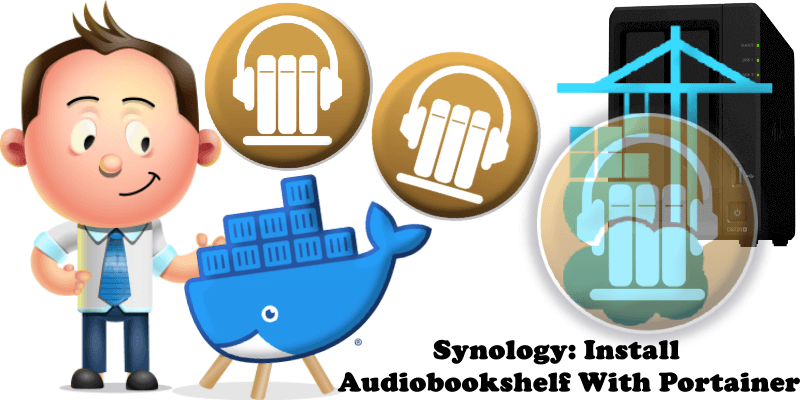
My previous guide for Audiobookshelf involved the use of Task Scheduler. Today I’m offering a recommended and excellent alternative for installing the latest Audiobookshelf version via Portainer. Audiobookshelf is a self-hosted audiobook server for managing and playing your audiobooks. It’s fully open-source, including the android & iOS app, currently in beta. You can stream all audiobook formats on the fly. Audiobookshelf has multi-user support and custom permissions. You can easily upload all the audiobooks from your computer to your Synology NAS. In this step by step guide I will show you how to install Audiobookshelf on your Synology NAS using Docker & Portainer.
STEP 1
Please Support My work by Making a Donation.
STEP 2
Install Portainer using my step by step guide. If you already have Portainer installed on your Synology NAS, skip this STEP. Attention: Make sure you have installed the latest Portainer version.
STEP 3
Go to File Station and open the docker folder. Inside the docker folder, create one new folder and name it audiobookshelf. Follow the instructions in the image below.
Note: Be careful to enter only lowercase, not uppercase letters.
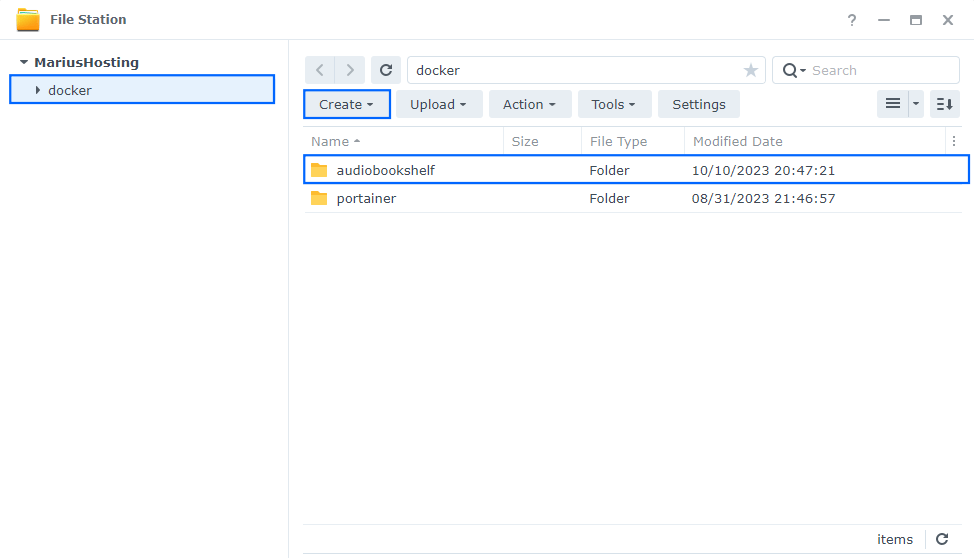
STEP 4
Now create two new folders inside the audiobookshelf folder that you created at STEP 3 and name them audiobooks and metadata. Follow the instructions in the image below.
Note: Be careful to enter only lowercase, not uppercase letters.
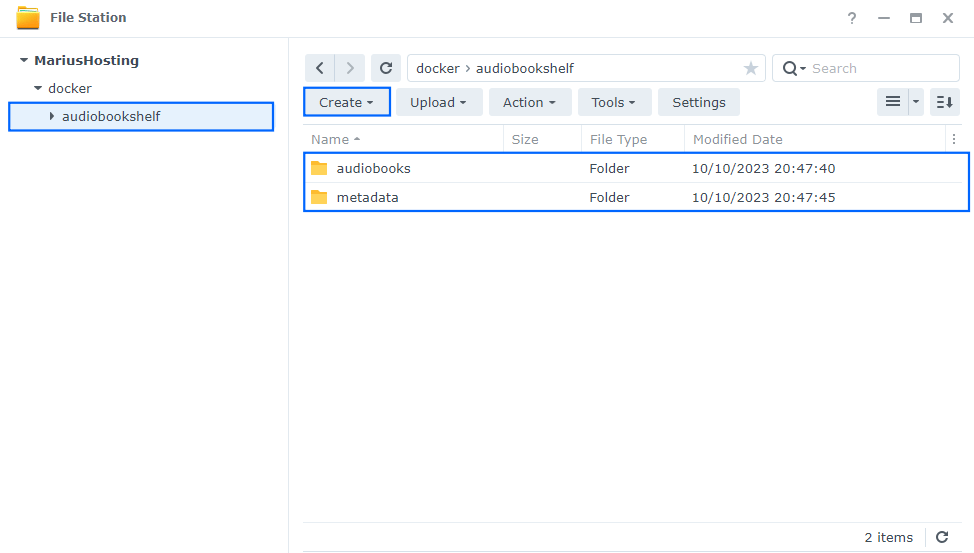
STEP 5
Log into Portainer using your username and password. On the left sidebar in Portainer, click on Home then Live connect. Follow the instructions in the image below.

On the left sidebar in Portainer, click on Stacks then + Add stack. Follow the instructions in the image below.

STEP 6
In the Name field type in audiobookshelf. Follow the instructions in the image below.
services:
audiobookshelf:
container_name: Audiobookshelf
image: advplyr/audiobookshelf
security_opt:
- no-new-privileges:true
healthcheck:
test: ["CMD-SHELL", "nc -z 127.0.0.1 80 || exit 1"]
interval: 10s
timeout: 5s
retries: 3
start_period: 90s
mem_limit: 4g
cpu_shares: 768
environment:
JWT_SECRET_KEY: dOxZYTTZgXKMHkqLBIQVImayQXAVWdzGBPuFJKggzcgvgPJPXpWzqzKaUOIOGGIr
ports:
- 13378:80
volumes:
- /volume1/docker/audiobookshelf:/config:rw
- /volume1/docker/audiobookshelf/audiobooks:/audiobooks:rw
- /volume1/docker/audiobookshelf/metadata:/metadata:rw
restart: on-failure:5
Note: Before you paste the code above in the Web editor area below, change the value for JWT_SECRET_KEY. (Generate your own Random 64 length JWT_SECRET_KEY.)
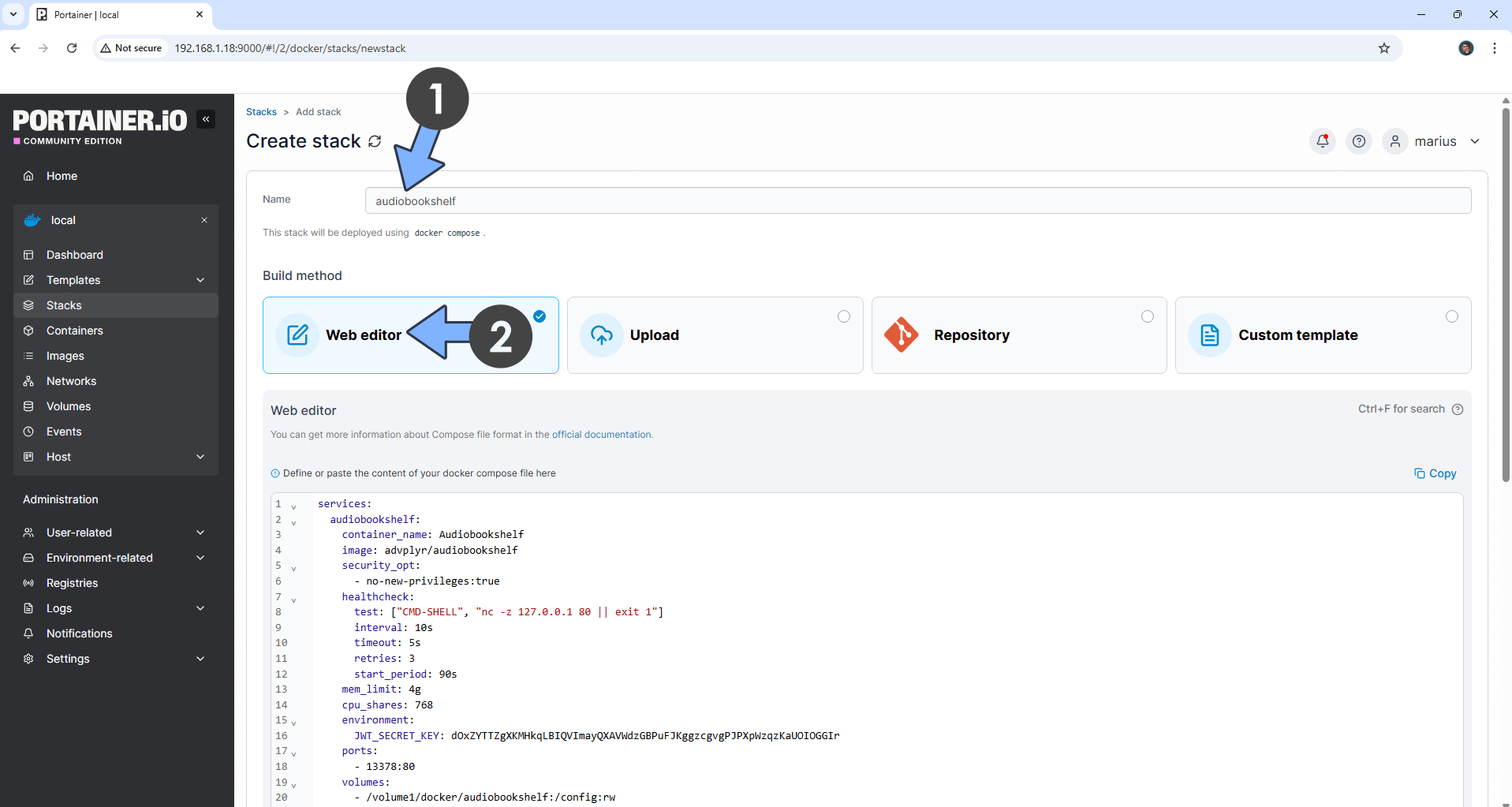
STEP 7
Scroll down on the page until you see a button named Deploy the stack. Click on it. Follow the instructions in the image below. The installation process can take up to a few minutes. It will depend on your Internet speed connection.
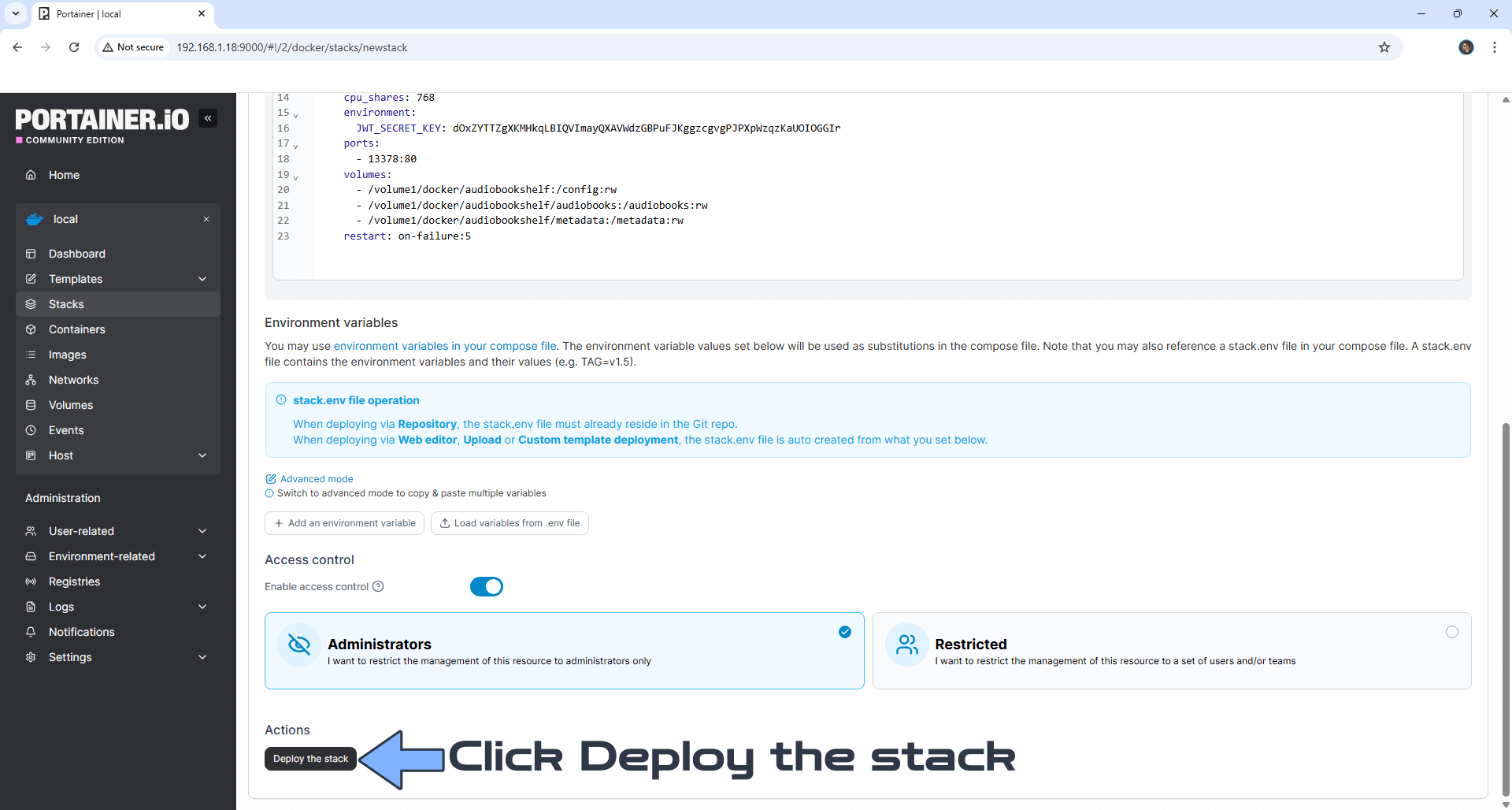
STEP 8
If everything goes right, you will see the following message at the top right of your screen: “Success Stack successfully deployed“.

STEP 9
🟢Please Support My work by Making a Donation. Almost 99,9% of the people that install something using my guides forget to support my work, or just ignore STEP 1. I’ve been very honest about this aspect of my work since the beginning: I don’t run any ADS, I don’t require subscriptions, paid or otherwise, I don’t collect IPs, emails, and I don’t have any referral links from Amazon or other merchants. I also don’t have any POP-UPs or COOKIES. I have repeatedly been told over the years how much I have contributed to the community. It’s something I love doing and have been honest about my passion since the beginning. But I also Need The Community to Support me Back to be able to continue doing this work.
STEP 10
The installation process can take up to a few seconds/minutes. It will depend on your Internet speed connection. Now open your browser and type in http://Synology-ip-address:13378 You will be prompted to create the Administrator user. Type in your own Username and Password, then click Submit. Follow the instructions in the image below.
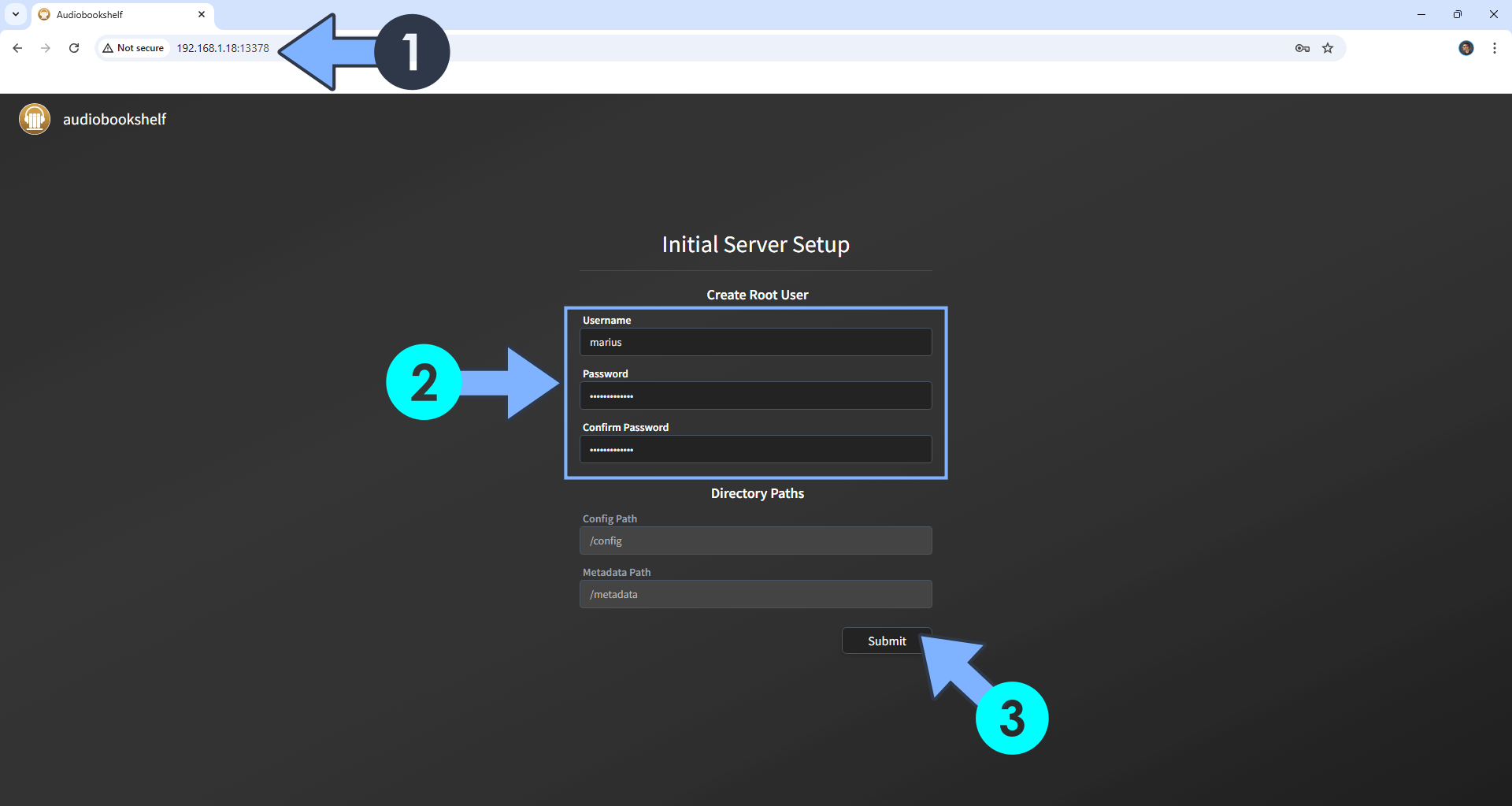
STEP 11
Type in your own Username and Password that you have previously created at STEP 10, then click Submit. Follow the instructions in the image below.
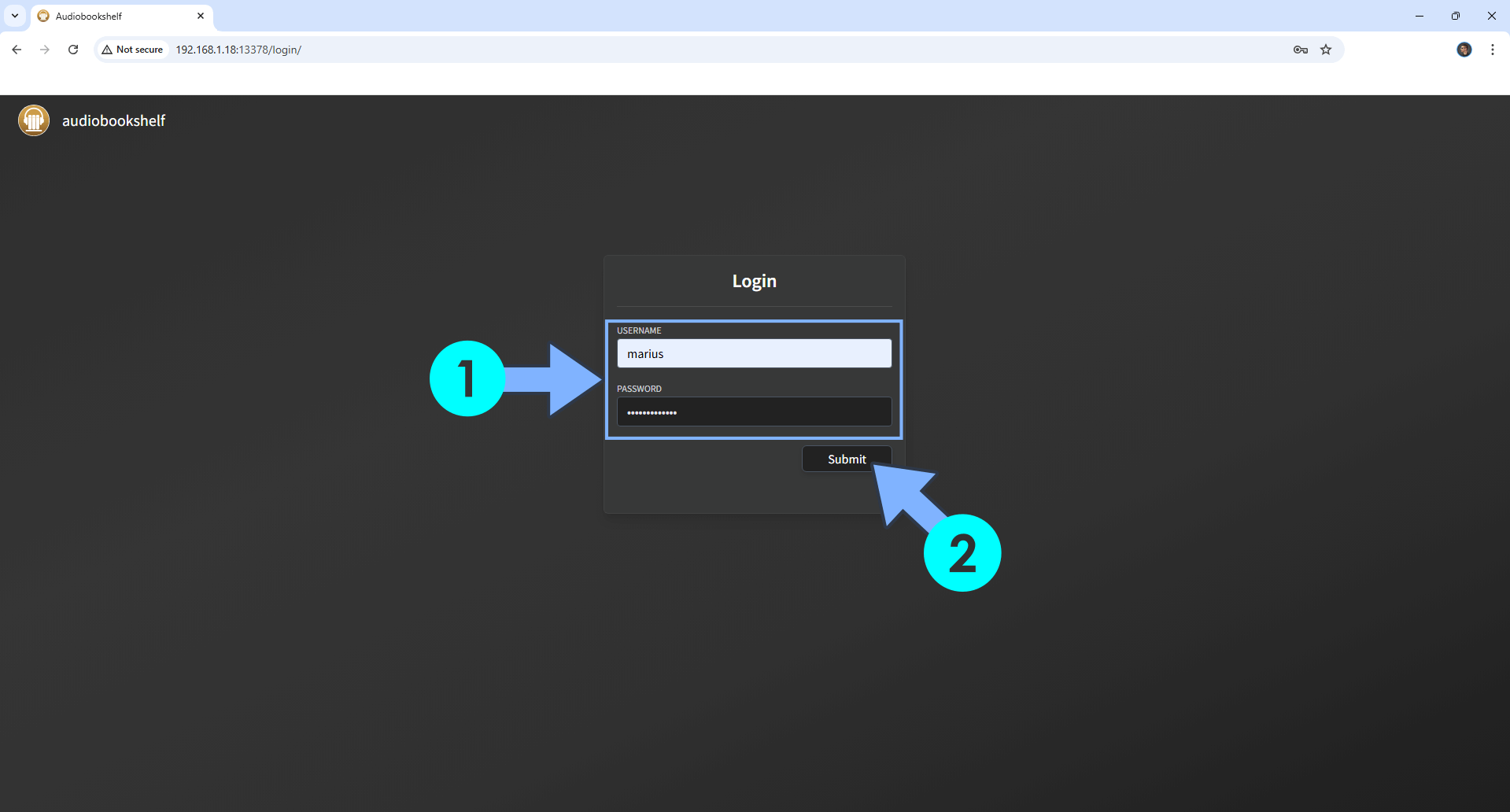
STEP 12
On the left sidebar, click Libraries, then Add your first library. Select the Media Type “Books”. Give a name to the library, then click Browse for Folder. Follow the instructions in the image below.
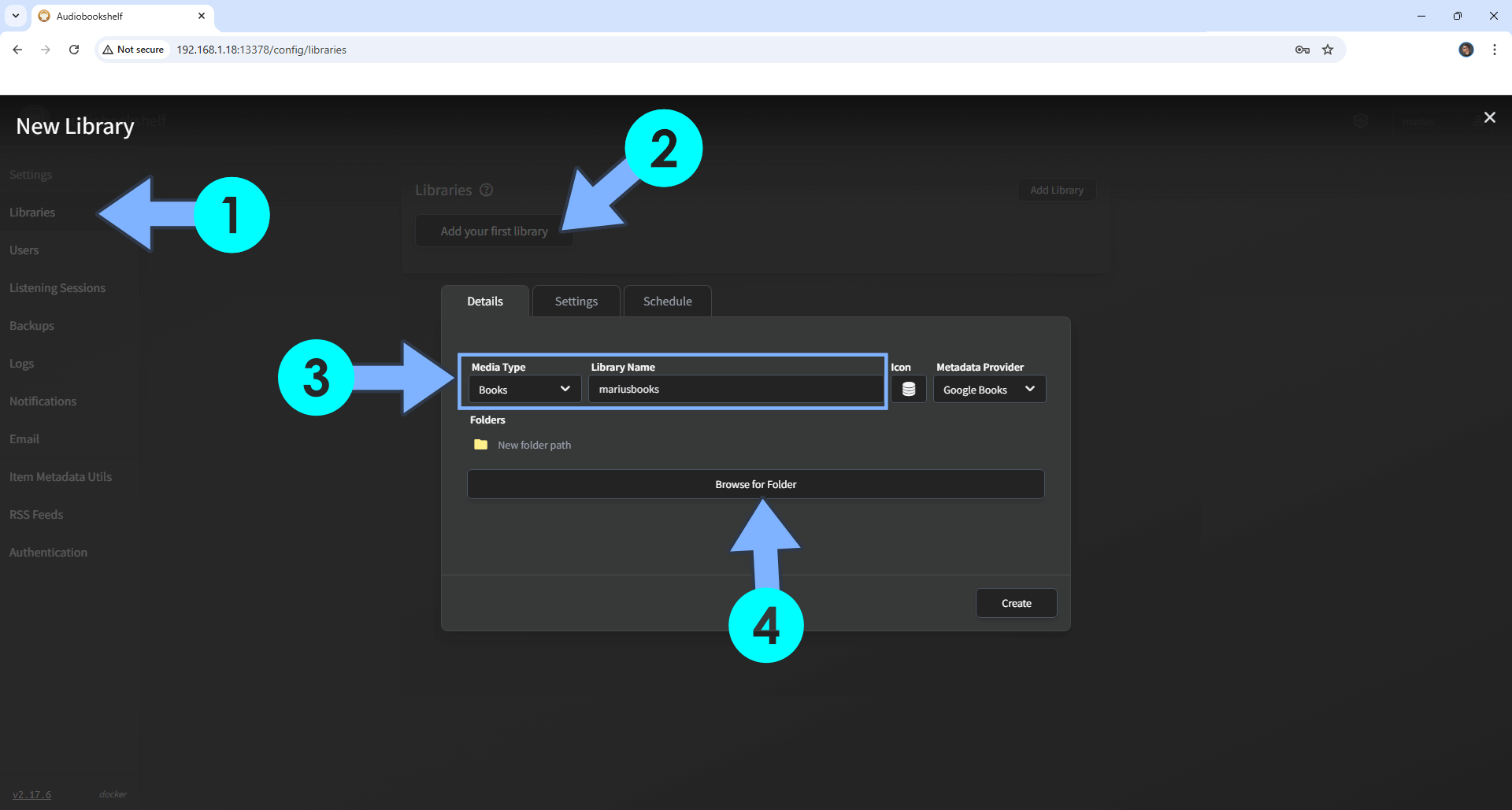
STEP 13
Select the audiobooks folder, then click Select Folder Path. Follow the instructions in the image below.
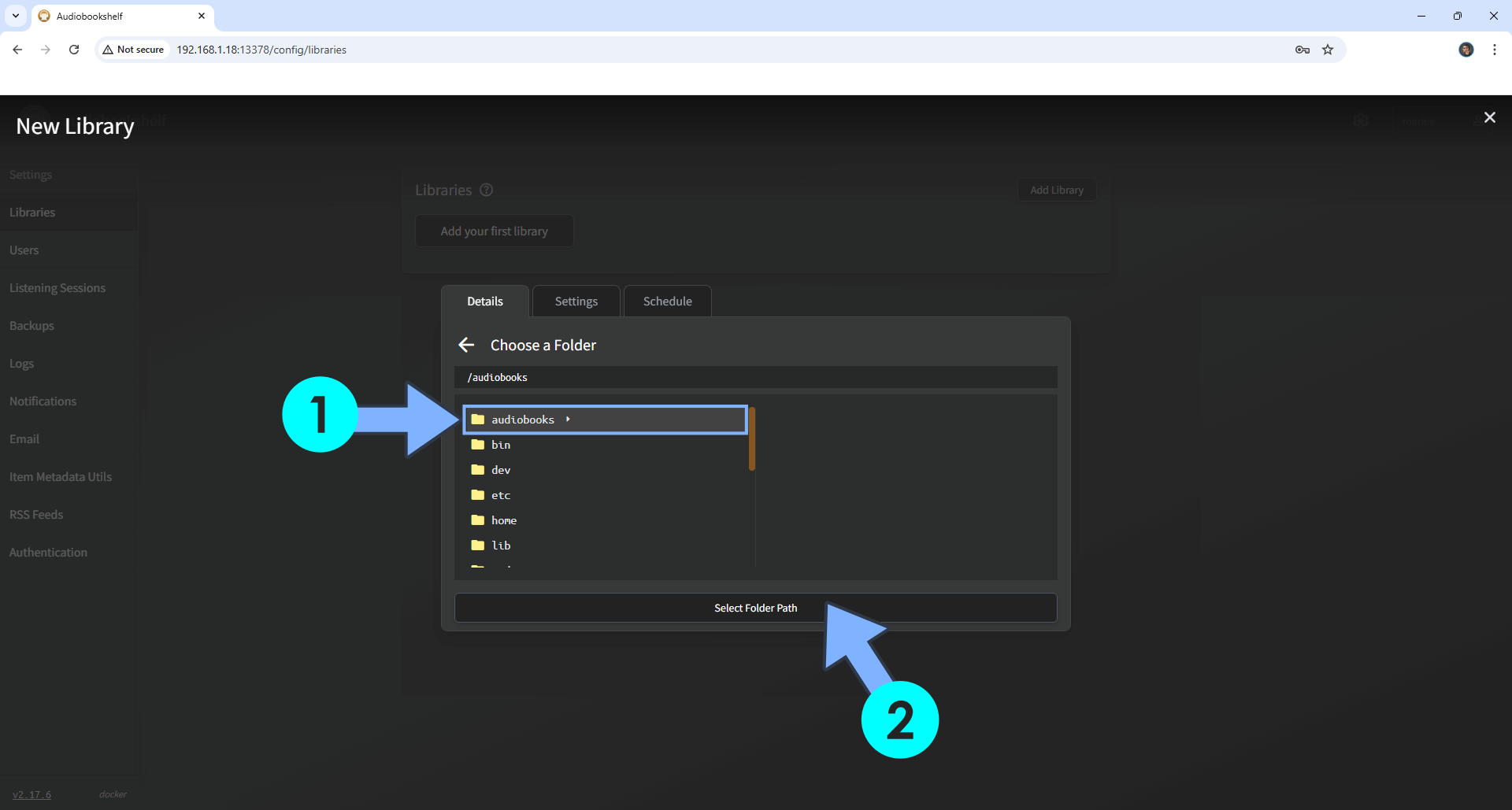
STEP 14
Click Create. Follow the instructions in the image below.
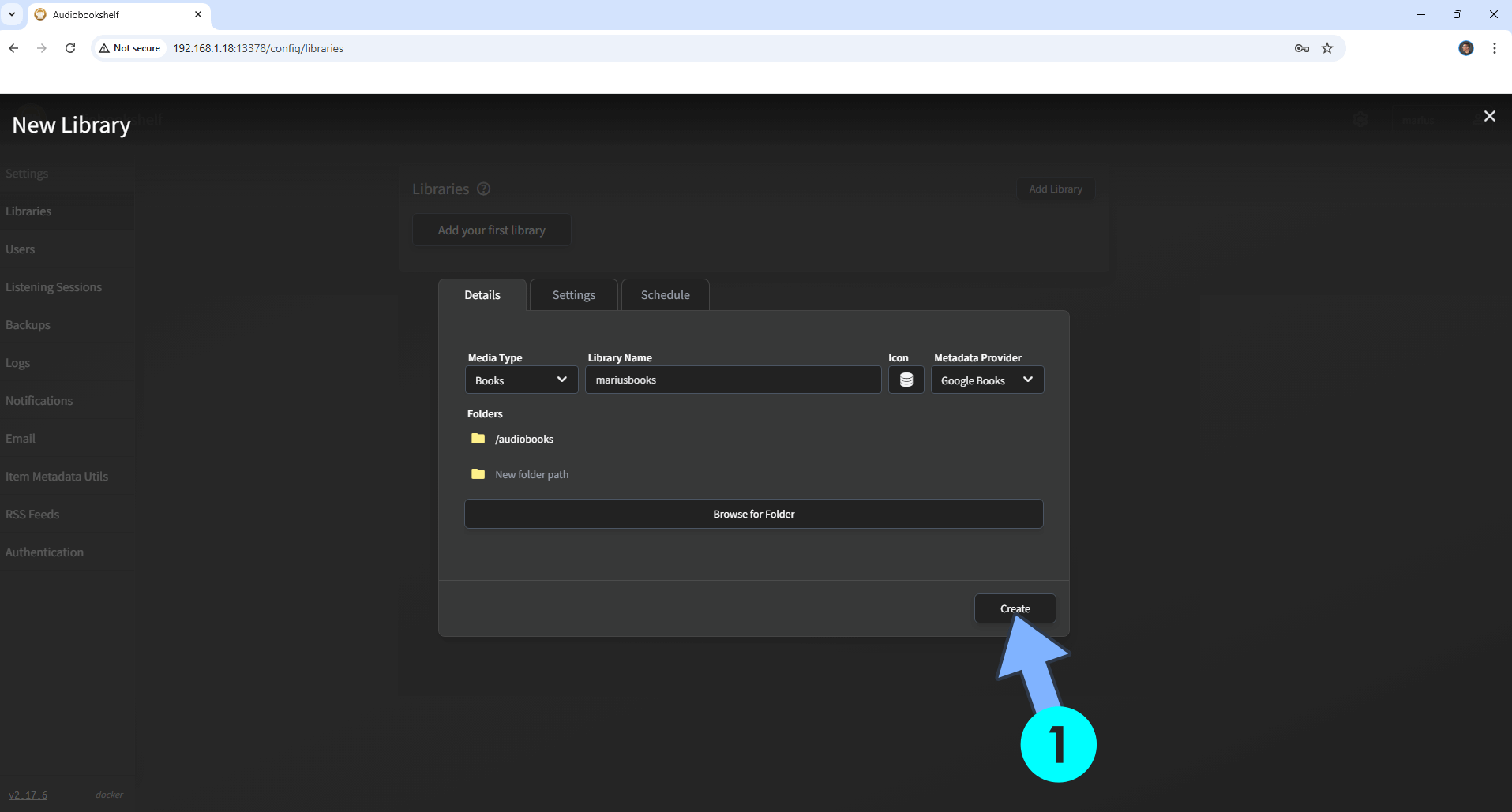
STEP 15
⚠️Warning: Before Scanning your new library that you have created, make sure you have added/uploaded your audio files inside the audiobooks folder that you have previously created at STEP 4. Click Scan. Follow the instructions in the image below.
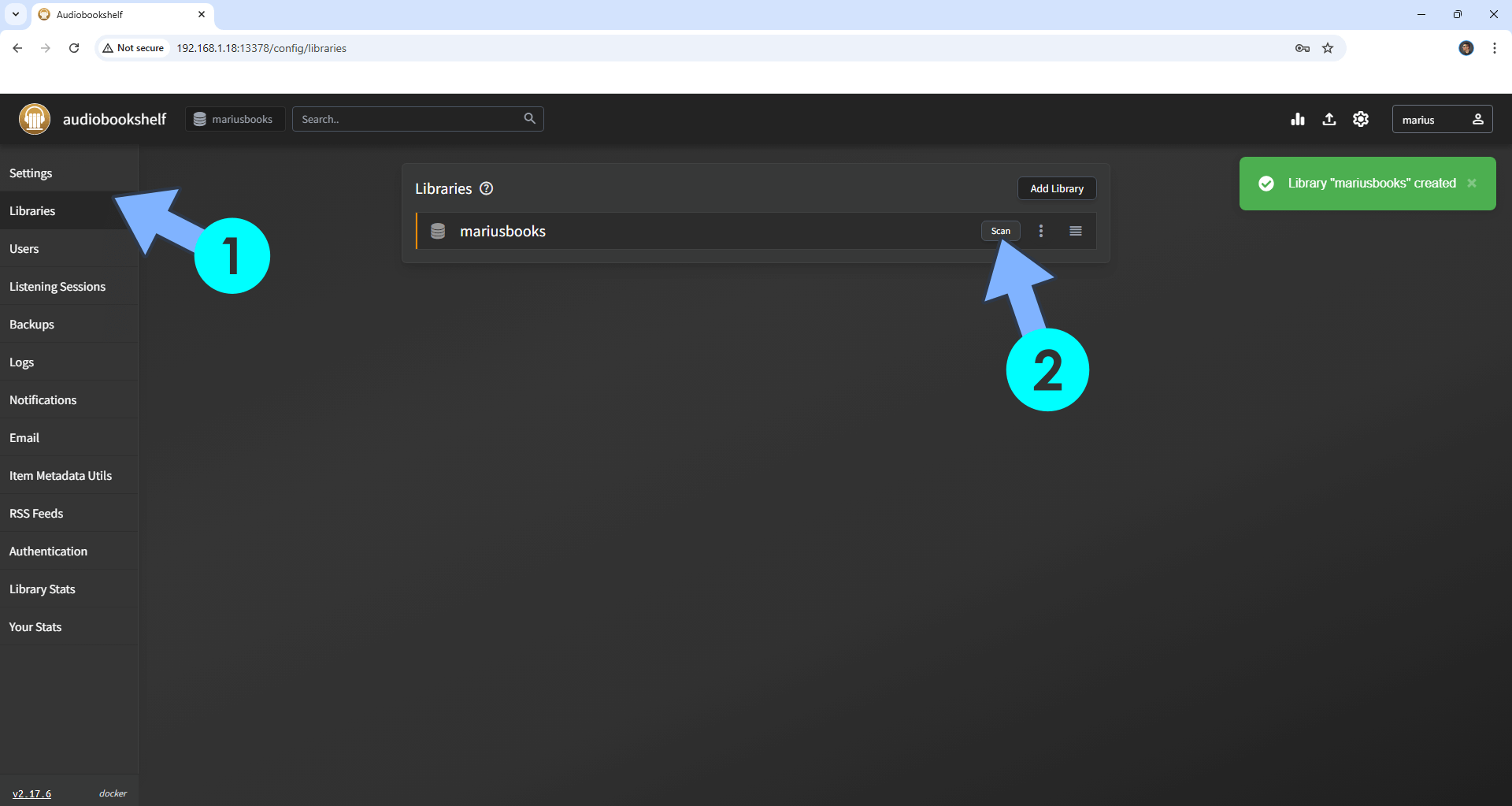
STEP 16
Your Audiobookshelf at a glance!
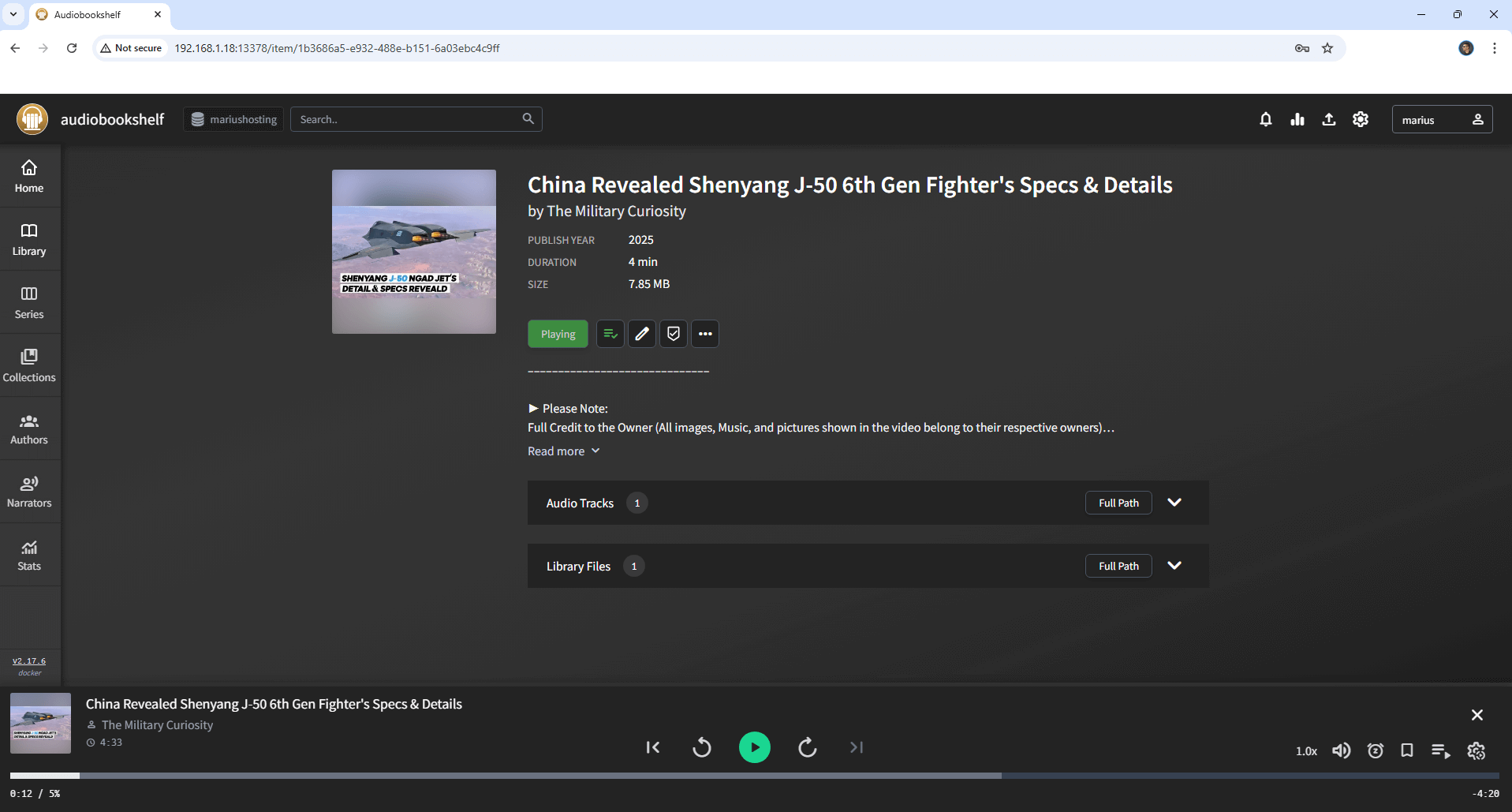
Enjoy Audiobookshelf!
If you encounter issues by using this container, make sure to check out the Common Docker issues article.
Note: If you want to run the Audiobookshelf container over HTTPS, check How to Run Docker Containers Over HTTPS. In order to make Audiobookshelf work via HTTPS, it’s mandatory to activate WebSocket.
Note: Can I run Docker on my Synology NAS? See the supported models.
Note: How to Back Up Docker Containers on your Synology NAS.
Note: Find out how to update the Audiobookshelf container with the latest image.
Note: How to Free Disk Space on Your NAS if You Run Docker.
Note: How to Schedule Start & Stop For Docker Containers.
Note: How to Activate Email Notifications.
Note: How to Add Access Control Profile on Your NAS.
Note: How to Change Docker Containers Restart Policy.
Note: How to Use Docker Containers With VPN.
Note: Convert Docker Run Into Docker Compose.
Note: How to Clean Docker.
Note: How to Clean Docker Automatically.
Note: Best Practices When Using Docker and DDNS.
Note: Some Docker Containers Need WebSocket.
Note: Find out the Best NAS Models For Docker.
Note: Activate Gmail SMTP For Docker Container
This post was updated on Thursday / February 5th, 2026 at 3:41 PM
